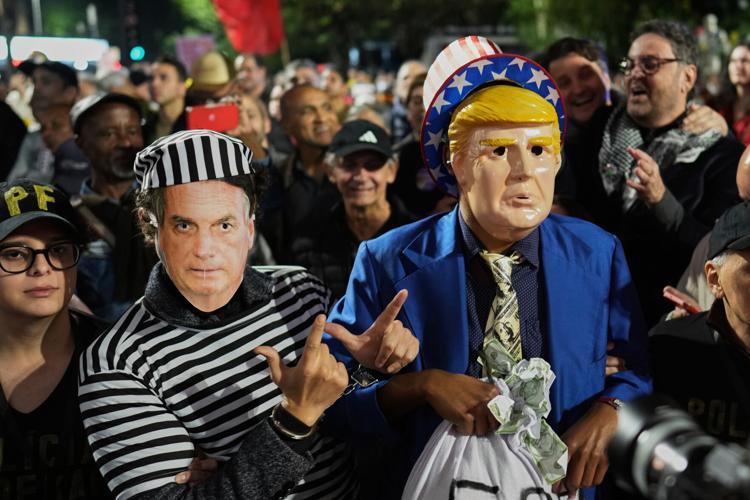Trump's Brazil Tariff: Breakfast Costs and Political Grudges
Omar HassanTrump's proposed 50% tariff on Brazilian goods sparks fears of rising breakfast costs and a potential trade war.

President Trump has threatened to impose a 50% tariff on all goods imported from Brazil, a move that could significantly impact American consumers. The tariff announcement, made public on Wednesday, cites Brazil's treatment of former President Jair Bolsonaro and the prosecution of U.
S. social media companies as justification.
This decision has sparked concerns over potential increases in the prices of everyday goods, particularly breakfast staples like coffee and orange juice. The situation is developing quickly, with Brazil vowing to retaliate if the tariffs are implemented.
The proposed tariffs are not purely based on economic factors, but also appear to be driven by Trump's personal and political alliances. The move has drawn criticism from various sectors, with concerns raised about the impact on trade relations and the potential for a trade war.
As the August 1st deadline approaches, both countries are under pressure to negotiate a resolution to avoid economic repercussions. The situation highlights the complex interplay between trade policy, international relations, and domestic politics..
Highlights
- Trump threatens 50% tariffs on Brazilian goods, citing Bolsonaro trial and social media disputes.
- Coffee and orange juice prices in the U. S. could rise due to the new tariffs.
- Brazil vows to retaliate with reciprocal tariffs if the U. S. implements the import taxes.
Read More: Xbox to be like Office: Everywhere, says Nadella
Top 5 Key Insights
• Political Motivation: Trump's decision appears to be influenced by his support for Jair Bolsonaro and disapproval of the Brazilian Supreme Court's actions. This suggests that personal relationships and political considerations are playing a significant role in shaping U. S. trade policy.
• Potential for Increased Consumer Costs: The tariffs could lead to higher prices for Brazilian goods in the U. S., particularly affecting breakfast staples like coffee and orange juice. This would directly impact American consumers, potentially leading to a decrease in demand for these products.
• Trade War Risk: Brazil has threatened to retaliate with its own tariffs on U. S. goods if Trump's tariffs are implemented. This raises the possibility of a trade war between the two countries, which could have broader economic consequences.
• Impact on Agribusiness: Brazil's agribusiness sector is concerned about the potential negative effects of the tariffs on their exports. The tariffs could impact the exchange rate and reduce the competitiveness of Brazilian products in the U. S. market.
• Reciprocity Law: Brazil's President Lula has indicated that he will trigger the country's reciprocity law if negotiations with the U. S. fail. This law allows Brazil to suspend trade agreements and impose retaliatory measures when other countries harm its competitiveness.
Read More: Jessica Alba's Net Worth: Acting, Business & Real Estate
Expert Insights
Brazil's agribusiness caucus in Congress: "These new tariffs produce direct effects and hit Brazil's agribusiness, impacting the exchange rate, in the rise of the cost of imported inputs and in the competitiveness of Brazilian exports." Brazilian President Luiz Inácio Lula da Silva: "If there's no negotiation, the reciprocity law will be put to work. If he charges 50 (% tariffs) from us, we will charge 50 from them."
Read More: AI Search Engines Favor Less Popular Sources: Study
Wrap Up
The looming tariffs between the U. S.
and Brazil underscore the fragility of international trade relationships and the potential for political factors to disrupt economic stability. The situation highlights the importance of diplomacy and negotiation in resolving trade disputes to avoid negative consequences for businesses and consumers alike.
As both nations weigh their options, the global community watches to see whether cooperation or conflict will prevail, shaping the future of their economic partnership. The outcome will serve as a telling example of how political alliances and personal grievances can influence international trade..
Read More: Trump's $80B Nuclear Reactor Plan Fuels AI Ambitions
Author
Omar Hassan - An experienced international affairs correspondent with a global perspective on major world events and diplomacy. He brings insightful commentary on global trends and international relations to Enlightnr.More to Explore
- Choosing a selection results in a full page refresh.
- Opens in a new window.




